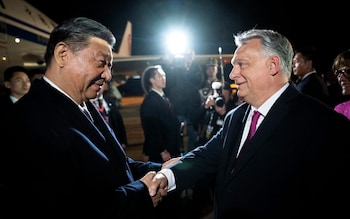A year ago, Chinese President Xi Jinping made a rare visit to Europe, with Budapest as a key stop. The meeting with Hungarian Prime Minister Viktor Orban was more than diplomatic courtesy; it may have sealed the fate of Europe’s car industry.
Earlier this month, BYD, China’s largest electric vehicle (EV) manufacturer, announced plans to set up its European headquarters in Hungary, leveraging its existing factory there to bypass EU tariffs on Chinese EVs imposed last year. This move could significantly impact European carmakers already struggling against cheap Chinese imports.
The Chinese Threat
BYD’s decision comes at a critical time. In April, the company surged to the top 10 in European battery electric vehicle sales, surpassing Tesla and Peugeot. Analysts predict that once BYD begins local production in Hungary, its market share will grow substantially. “If they are already selling a lot of cars, all of them imported from China, some exposed to tariffs, then I can’t imagine how fast they’ll grow once they start producing locally,” said Felipe Munoz, an analyst at Jato Dynamics.

This development marks a new phase in the European EV market. Unlike other Chinese companies operating under local labels like MG, Lotus, and Volvo, BYD is establishing its presence directly. Hungary, already a significant recipient of Chinese investment, pulled in 31% of all Chinese investment into Europe last year, more than Britain, France, and Germany combined.
Consequences for Europe
Experts warn that if this investment trend continues, it will pressure manufacturers across Germany and France. “If there are more factories like this in the future, and if production by Chinese automakers within Europe rises, that would intensify the challenge Chinese EV makers pose to European carmakers,” said Andreas Mischer, an analyst at Merics.
The European Council on Foreign Relations (ECFR) warns of even graver consequences, suggesting China’s expansion, backed by state subsidies, could crush Europe’s car industry. “Europeans are up against the strategic ambitions of the Chinese Communist Party,” the ECFR report stated.
Political Ramifications
Orban’s move has deepened his rift with the EU, which has criticized Hungary’s draft transparency law and faces a potential flashpoint over a banned Pride celebration. Despite these tensions, Orban continues to woo Chinese investment, which comes with political risks, particularly with the US.

The EU is navigating these challenges, with Brussels negotiating with Beijing over an alternative to the current EV tariffs. However, the “Hungarian backdoor” might remain open, allowing Chinese manufacturers to access the EU market tariff-free.
Future Prospects
Analysts are divided on the immediate impact. Some see BYD’s current sales volume as insufficient to justify local production, calling it a “chicken-and-egg situation.” Others believe Chinese companies’ agility and pace will outmaneuver European rivals, especially in emerging markets.

For now, Hungary remains the Chinese foothold in Europe, potentially setting the stage for prolonged tension between Budapest and Brussels.



